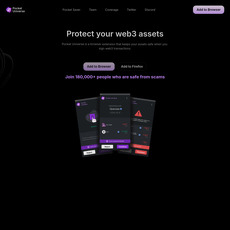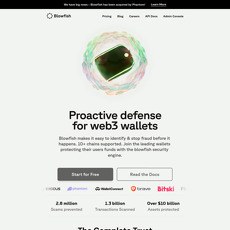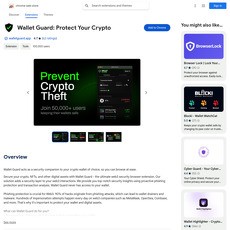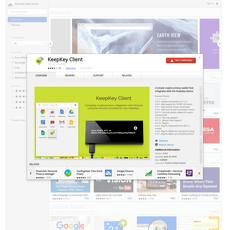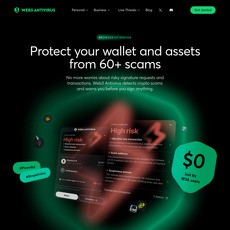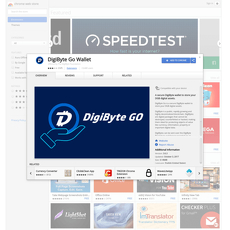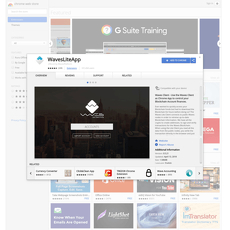Revoke Review
Revoke
revoke.cash
Revoke.cash Crypto Ultimate Review: Protect Your Wallet Like a Pro
Are you 100% confident about the security of your crypto wallet? Have you ever wondered if some unknown permission you approved months ago could lead to losing your hard-earned tokens? If you’re already second-guessing, you’re not alone, and you’re in the right place.
Picture this: You’re exploring a cool new decentralized app (dApp), approving all those smart contract permissions without a second thought. Fast forward, and you later realize some of these permissions are open invitations for malicious exploits. Sounds scary? It’s more common than you think. Without proper management of token approvals, you could unintentionally grant shady contracts access to your funds indefinitely. The consequences? Big losses. But there’s a fix, and trust me, it’s simpler than you think.
The Problem: Hidden Risks in Your Wallet
Managing your crypto wallet might sound straightforward, but serious risks often go unnoticed. Here’s the deal: smart contracts and token permissions are incredibly useful, but they come with a dark side. Let’s break it down.
Smart Contracts Gone Wrong
We all love the idea of decentralized finance (DeFi) and smart contracts, but here’s the bitter truth: Not all smart contracts are safe. Sometimes, you unknowingly approve permissions that allow malicious contracts or individuals to keep draining your tokens. Yikes, right?
Even seasoned crypto users get tricked. For instance, in 2022, exploiters used harmful smart contracts to siphon millions from unsuspecting users who had granted indefinite approvals. It’s a harsh reminder that without proper vigilance, anyone can fall victim.
Loss of Control Over Tokens
Did you know that certain permissions remain active even if you stop using that dApp or platform? Most users think permissions are temporary—here for the moment and gone later. Unfortunately, that’s not how it works. Those approvals can linger forever unless you take action to revoke them.
Here’s a common scenario: You approved a token swap on a decentralized exchange months ago, but the token never left your wallet. Guess what? That contract might still have ongoing access. If someone exploits it—boom, your funds are gone. Managing these permissions isn’t just smart; it’s essential.
How revoke.cash Can Fix This For You
This is where revoke.cash steps in as your crypto superhero. Think of it as a way to “audit” your wallet and cancel any unnecessary or risky smart contract permissions. It’s easy, beginner-friendly, and puts you back in charge. Whether it’s reducing exposure to bad actors or simply spring-cleaning your wallet, revoke.cash makes the process ridiculously simple.
So, what’s the secret sauce behind revoke.cash? And how exactly does it protect your tokens while keeping your wallet secure? You don’t want to miss the next part because I'll break it all down for you!
What is revoke.cash? The Overview
Let me ask you something—when was the last time you checked the permissions you’ve granted from your wallet? If the answer is somewhere between "never" or "I’m not sure," then you’re going to want to stick with me here. Imagine giving someone the keys to your house but forgetting who has them—and worse, what they could do with them. That’s exactly what happens with your wallet when smart contract permissions are left unchecked.
A Must-Have Tool for Crypto Users
Here’s where revoke.cash comes in like a life-saver. It’s not just another crypto tool; it’s your personal permissions manager for your crypto wallet. The beauty of it? It puts you back in the driver’s seat. With revoke.cash, you can see every single smart contract and token approval lingering in your wallet. Think of it as having an X-ray for your wallet. Hidden risks? Not anymore.
Let me share a quick example. Say you approved a random NFT marketplace a few months ago for that one-time trade you barely remember. That approval is still hanging there, wide open, just waiting to be exploited. With revoke.cash, you can find it and shut it down in seconds.
How Does It Work?
The simplicity of revoke.cash is what makes it brilliant. Here’s the gist of how it works:
- Connect Your Wallet: You connect tools like MetaMask, Ledger, or other popular wallets with a single click.
- Scan Permissions: It automatically scans for every contract or token approval interacting with your wallet.
- Analyze Smart Contracts: You’ll clearly see which contracts have been granted access and whether they look suspicious.
All of this happens in a flash—no technical background needed. No more cryptic messages or endless digging for answers. Just clarity on where your risk lies.
Why Should You Care?
Many people only start caring about permissions after it’s too late. Don’t wait to be that person. If you’ve approved contracts you don’t remember or maybe even interacted with a shady dApp once, you’re leaving your tokens—and your peace of mind—on the table.
"When it comes to crypto security, ignorance isn’t bliss—it’s expensive."
Let’s not forget the endless stories of users waking up to drained wallets—all because they left an approval open. Here’s the deal: these permissions don’t magically expire. You need a tool like revoke.cash to clean up the mess.
Oh, and don’t think it’s just about bad intentions. Sometimes, it could simply be unused contracts piling up, cluttering your wallet and making it less efficient. Why let anything linger when the fix is so easy?
The question is: are you ready to see how exposed your wallet is—or do you prefer taking chances?
How to Use revoke.cash (Step-By-Step)
Getting started with revoke.cash feels like unlocking a secret shield for your crypto wallet. If you’ve ever thought, “I’m not techy enough to deal with this stuff,” let me stop you right there. Using revoke.cash is simple, even for absolute beginners. Let me walk you through it, step by step.
Step 1: Connect Your Wallet
First things first—connect your wallet. Whether you prefer MetaMask, Ledger, or any other popular wallet, the connection process is seamless. Simply visit revoke.cash and click that big “Connect Wallet” button. Your wallet will prompt you for permission, just like any standard transaction.
Worried about privacy? Take a breath. Revoke.cash only accesses the information it needs to show your active permissions. It doesn’t get anywhere near your private keys. You’re still in full control.
Step 2: Scan for Permissions
Once your wallet is connected, this is where the magic happens. Revoke.cash will quickly scan your wallet for any active token or smart contract approvals. What you’ll see is a list of all approvals—including spender details (who has access) and what they have access to.
Here’s a tip: Start by focusing on anything that stands out. Maybe there’s an approval from that random DeFi farm you used once six months ago. Or an obscure contract you interacted with during a free NFT minting spree. Trust me, this scan is like opening a window into your wallet’s hidden risks.
Step 3: Revoke Unwanted Permissions
Found something suspicious—or simply unnecessary? Time to take action.
- Click on the approval you want to revoke. It’s clearly labeled, so you won’t miss it.
- Hit the “Revoke” button next to it. This will cancel that specific approval.
You might feel a slight adrenaline rush here—and that’s normal. It’s empowering to take back control! Think of it like shredding a contract that wasn’t serving you anymore.
Confirm via Your Wallet Interface
Once you’ve hit “Revoke,” your wallet will ask for final confirmation. This step ensures that nothing happens without your explicit approval. For example, if you’re using MetaMask, a pop-up will appear with transaction details, including the gas fee.
After you confirm, the transaction is processed on the blockchain. And that’s it—the permission is gone. Clean. Secure. Done.
“You’ll never realize how much risk you were carrying until it’s gone. It’s like locking the backdoor you didn’t know was open.”
By the way, if you’re thinking this sounds tedious, it’s not. The whole process takes minutes. And the peace of mind you get? Worth every second.
Here’s what I often hear next: “But how do I know when to revoke token approvals? Should I be doing this regularly?” Don’t worry—stick around, and I’ll share exactly when you should take this step to stay ahead of wallet risks.
When Should You Revoke Token Approvals?
Ever felt a knot in your stomach after signing a transaction and wondering if you just made a mistake? Don’t worry—you’re not alone. Knowing when to pull the plug on token approvals can make a world of difference in keeping your funds safe. Let’s dig into the scenarios where you should definitely be hitting that ‘Revoke’ button.
Suspicious Transactions
Picture this: you’ve been exploring a new dApp that everyone’s hyped about, only to realize something feels a bit... off. Maybe you don’t recognize the address you just interacted with, or perhaps the transaction details didn’t look quite right in hindsight. This is your cue to act fast. Run revoke.cash, check the authorization list, and remove any stranger’s access to your wallet.
Why? Because hackers prey on uncertainty. You don’t want your tokens exposed to a potential attack. As they say in crypto circles: "Once you suspect, reject."
Cleaning Up Old Permissions
Think about the apps or smart contracts you interacted with six months ago—do you even remember all of them? Probably not. Permissions in your wallet work the same way as forgotten subscriptions on your credit card. They just sit there, waiting for the wrong moment to be exploited.
Make it part of your routine to “spring clean” your wallet. Revoke permissions for apps or protocols you don’t use anymore. It’s like decluttering your digital house—and trust me, it feels just as satisfying.
When a Token Seems Off
Have you ever noticed a token in your wallet acting strange? For example, random price spikes, missing values, or mysterious behavior during transactions. That’s a big red flag. Malicious tokens can have hidden lines of code to exploit permissions you’ve already granted.
Being proactive is key: whenever something looks suspicious or too good to be true, hop on revoke.cash and revoke the related approvals. It takes just a few seconds but could save you from a major headache (or worse, a wallet drain).
Quick Checklist:
- Did you recently connect to a questionable dApp? Revoke.
- Still holding permissions from that NFT mint last year? Revoke.
- Suspicious token activity? Revoke.
Remember, keeping permissions open is handing over a key to your wallet—and who in their right mind would leave their house unlocked?
What’s Next?
If you’ve ever stopped to wonder, “Is using a tool like this actually safe?” you’re not alone. Stick around as I unpack exactly what makes revoke.cash a trustworthy and secure option in the next section. Your doubts—gone. Your tokens—secure.
Is It Safe to Use revoke.cash? Security Breakdown
Let’s get real for a moment. Crypto security isn’t just about avoiding scams—it’s about who and what you trust with your wallet. When it comes to a tool like revoke.cash, the big question on everyone’s mind is, “Can I trust this with my wallet?” Spoiler alert: Yes, you can. Here’s why.
Non-Custodial Approach
First things first, revoke.cash has a non-custodial design. What does that mean for you? It means the tool doesn’t store anything about your wallet—no private keys, no seed phrases, no data. You stay completely in charge of your assets at all times. Think of it as a flashlight that helps you see what’s lurking in the corners of your permissions. The flashlight never takes your wallet out of your pocket—it just lets you see what could go wrong.
This non-custodial feature is critical because it eliminates the single point of failure. No one, not even revoke.cash, can mess with your wallet. If you’ve ever had trust issues with third-party tools, this could be the peace of mind you need.
Transparent Transactions
Here’s something else to put your mind at ease: every action you take on revoke.cash is driven by *you*. Let me break it down:
- When revoking permissions, you must confirm the transaction directly through your wallet. That means MetaMask, Ledger, or whatever wallet you use is in the driver's seat.
- No sneaky stuff happens in the background. Everything is visible on the blockchain where anyone can verify it.
- Revoke.cash doesn’t have “automatic” controls. You make all the calls, and nothing proceeds without your explicit confirmation.
That’s the beauty of how this tool works—you maintain ownership every step of the way. It’s not *doing* things on its own; it’s helping you do things better.
Backed by the Community
You don’t have to just take my word for it. Revoke.cash is widely used and heavily relied on by the crypto community, from beginner users to advanced wallet wizards. Take Ethereum: studies have shown that a surprising number of approvals go unrevoked, and this tool has already helped countless users prevent token theft. Now that’s proof worth paying attention to.
“The greatness of a community is most accurately measured by the compassionate actions of its members.” – Coretta Scott King
In the crypto world, the community’s trust speaks louder than any fancy marketing pitch. And as of now, thousands of users stand behind revoke.cash because it works—and it works in a way that’s safe and straightforward.
All right, now that you know it’s safe to use revoke.cash, doesn’t it make you wonder what other tools out there might be worth adding to your crypto toolkit? Stick around, because next, we’re going to uncover some alternatives that can also help with token revocation. Ever wondered how revoke.cash compares to other options? You might be surprised by the insights coming up…
Other Tools Supporting Token Revocation
You already know how important it is to revoke permissions to keep your wallet secure, but here’s the million-dollar question—what if revoke.cash isn’t your cup of tea? Or maybe you’re just curious about other alternatives. No worries, there are some other great options out there. Let’s take a quick look at these and see how they compare.
Alternatives To Explore
The crypto world is full of tools that can help manage token approvals and revocations. Here are a few noteworthy options that deserve attention:
- Etherscan Token Approval Checker: If you’re an Ethereum user, Etherscan provides a built-in feature to check and revoke token approvals. It’s an excellent choice for tech-savvy users who are comfortable navigating the Etherscan interface. While its UI might feel slightly overwhelming for beginners, it’s a rock-solid option for hardcore Ethereum fans.
- DappRadar: This tool doesn’t just stop at showing approvals—it lets you explore dApps, analyze metrics, and even check for risky permissions. Some crypto enthusiasts swear by it for its multi-functional capabilities!
- Wallet Security Apps: Check apps like “Wallet Guard” or specific browser extensions that monitor your wallet activity in real time. They often complement tools like revoke.cash for added layers of security.
Each of these tools has unique strengths, but don’t just take my word for it. If you’re unsure about which one to use, try exploring a couple of them side-by-side and see what fits your needs best.
Why Choose revoke.cash?
Now, you might wonder—why not just use the alternatives? Here’s the thing: while they’re definitely useful, revoke.cash takes simplicity to another level. It’s designed with the everyday crypto user in mind, and that’s what makes it stand out. Let me give you some examples:
- You’re a newbie: Maybe you don’t have time to figure out complicated interfaces or learn blockchain explorers like Etherscan. revoke.cash has an intuitive design that makes it super easy to connect, check, and revoke permissions in just a couple of clicks.
- Time is money: If your daily schedule is packed (and whose isn’t?), you’ll love how quickly revoke.cash lets you scan your wallet and revoke the permissions that could be quietly exposing your assets. It’s literally a five-minute task.
- Stress-free experience: The minimalist interface is perfect for avoiding decision fatigue. No unnecessary features, no distractions. Just connect your wallet and secure it. Could it get any easier?
“There is no such thing as ‘too much security’ when it comes to your assets. It’s not paranoia—it’s preparation.”
While other tools might offer extra bells and whistles, revoke.cash stays laser-focused on what matters—empowering you to secure your crypto assets without a headache.
So, what’s the cost of token revocation? Is it worth it? Stay tuned because we’re about to uncover that in the next section, and I guarantee the answer will surprise you.
Costs of Revoking Token Approvals
Let’s talk money. Is revoking those pesky wallet permissions free? Not quite—but before you decide it’s not worth it, let me break it down for you.
Gas Fees Apply
Each time you revoke a token approval, there’s a cost involved: gas fees. These fees are what you pay to process the transaction on the blockchain. The amount depends on the current network congestion and the blockchain you’re using.
For example, on Ethereum, during peak activity (like when everyone’s chasing hyped NFT drops or DeFi moves), fees can get pretty steep. On the flip side, if you’re using a layer-2 solution or a less congested network like Polygon, the costs are usually minor. Want a quick hack? Perform these revocations during “off-peak” times like weekends or when gas fees naturally dip—you’ll save a nice chunk!
Is It Worth It?
"The cost of safety is far less than the price of regret." That quote’s a little dramatic, but it rings true in crypto security.
Yes, gas fees can feel annoying, but isn’t a small fee worth protecting your entire portfolio? Imagine this scenario: you’ve unknowingly given malicious permissions to a shady smart contract. The result? You could wake up to an empty wallet—tokens gone, NFT collection wiped, funds drained. Now, compare that horrifying loss to the $5 or $20 gas fee you could’ve paid to revoke that approval. Perspective changes everything, doesn’t it?
Even the smallest loophole in your wallet’s security can be a jackpot opportunity for hackers. With millions lost in crypto scams and contract exploits globally, revoking unwanted permissions becomes less of an expense and more of an investment in peace of mind.
Here’s the Bigger Picture
If you’re still on the fence about spending gas on revocations, ask yourself this: How much is the security of your holdings really worth to you? Whether it's $100 in ERC-20 tokens, your hard-earned stake in DeFi pools, or high-value NFTs, the potential losses far outweigh the upfront fees for securing them.
- Worried about gas fees being too high? Monitor fee trackers like Etherscan Gas Tracker or consider “batching” revocations to save costs.
- Using network-specific chain explorers can help you check the exact token permissions and their risks before spending gas.
- Remember, not every permission needs immediate revocation—focus on cleaning up high-risk or suspicious approvals first.
Feeling curious about when and how often you should go through this process? Stick around—I’ve got answers coming right up that you won’t want to miss.
Frequently Asked Questions About Revoking Access
Let’s tackle some of the burning questions that might still be hanging out in your mind. If you’ve been wondering about the ins and outs of token revocation, I’ve got you covered. Some of these questions pop up in the crypto community all the time, so chances are, one of these hits close to home.
Do I Need to Revoke Often?
Here’s the thing—how often you need to revoke access depends on your activity. If you’re someone who frequently interacts with new DeFi platforms, swaps tokens regularly, or tries out experimental apps, you’re more likely to rack up permissions. In that case, it’s a good idea to make checking your approvals part of your routine.
Otherwise, if you stick to a couple of well-known platforms and don't engage much with new contracts, you might not need to revoke as often. Think of it like cleaning out your closet. Some people let it pile up for a year, while others stay on top of it weekly. Whatever your style, just don’t let it pile up until it becomes overwhelming—or worse, vulnerable.
Can I Revoke Across Multiple Chains?
Absolutely, and this is one of the coolest things about revoke.cash! Whether you do your crypto transactions on Ethereum, Polygon, Binance Smart Chain, or other popular networks, you can analyze and revoke permissions seamlessly. For instance, you might’ve approved a token on Ethereum in one app and granted access on Binance Smart Chain in another. Revoke.cash lets you manage all of it without juggling multiple tools.
This cross-chain functionality ensures that no matter where your crypto adventures take you, you can keep things locked down. It’s like having a universal remote for your wallet security—convenient and game-changing. No more searching for individual chain-specific tools!
Is There a Limit to Revocations?
Nope. You can revoke as many approvals as you want—whether it’s a couple of permissions or a massive clean-up operation. Let’s say you’ve been deeply involved in NFTs, DeFi yield farming, or swapping tokens for months and have amassed a long list of active approvals. You don’t need to hold back or worry about hitting a cap. Revoke to your heart’s content!
There’s freedom in knowing you aren’t restricted, and it’s reassuring to have tools like this that give you complete control. Whether you’re tightening security on one contract or wiping the slate clean, you’re in charge.
Any Risks in Revoking Permissions?
The short answer? Not really. The process is safe because revoke.cash doesn’t need access to your private keys, nor does it act on its own. You approve every action directly via your wallet. The only "risk" might be accidentally revoking access for something you still actively use—but honestly, that’s not even a big deal. You’d just re-approve it when needed. Simple.
Wondering how this level of transparency compares to other wallet security options out there? I can almost guarantee you're intrigued about what’s next. But here’s the kicker—there’s something more to consider when stepping up your crypto safety game. So, how do we pull all of this together into a seamless strategy?
Take Control of Your Wallet Today
Final Steps to Protect Your Wallet
If you’ve made it this far, you’re already on track to becoming a pro at managing your wallet permissions. Now is the moment to take action. Open revoke.cash, connect your wallet, and start checking those token approvals. You might be shocked to discover permissions you didn’t even remember granting. It happens to everyone, but the good news is you can fix it right away.
For example, let’s say you interacted with a random NFT trading platform months ago. At the time, you approved a smart contract to handle your tokens—completely normal. But now you’ve forgotten about it. What if that contract had a vulnerability? What if its developers didn’t secure it properly? Cases like these are why using tools like revoke.cash is critical. A few clicks, and you’ve significantly reduced your risk.
Additional Resources for Wallet Security
Ready to level up your wallet security even more? It always helps to stay informed. A few resources you can check out include:
- Etherscan’s Token Approval Checker – Helps identify approvals directly through the Ethereum blockchain.
- Community-driven forums like r/Ethereum or other cryptocurrency subreddits – Great for real-world experiences and tips.
- Blockchain explorers for your specific network – Tools like BscScan (for Binance Smart Chain) or Polygonscan (for Polygon) can provide additional details about transactions and permissions.
Studying how permissions work and the potential risks tied to smart contracts gives you the upper hand. Trust me, a little time educating yourself goes a long way in the crypto space.
Conclusion: Keep Your Wallet Safe
Let’s be honest—crypto can feel like a rollercoaster sometimes. But one thing you can control is your wallet security. Revoke.cash makes that process straightforward. By taking just five minutes today, you can review and revoke risky permissions, and instantly feel more confident about protecting your assets.
Don’t wait until something happens. Be proactive. Just as you’d lock the front door of your house, lock down your wallet permissions. Start small, stay consistent, and build habits that keep your crypto safe. Go ahead, try it now—it’s one of the simplest but most effective steps you can take to secure your digital future. Your tokens will thank you later.



